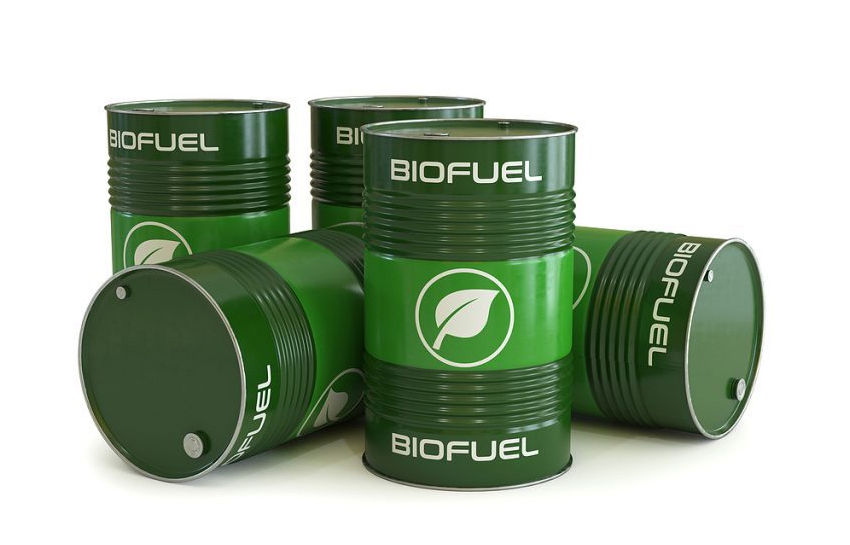
Verifying Sources in the Biofuel Feedstock Chain
The global biofuel market is exploding, especially in the U.S., E.U., Brazil, and Indonesia, where there are annual record amounts of biofuel in production. The International Energy Agency (IEA) expects hydrotreated vegetable oil (HVO) biodiesel output to quadruple. This is due to "a flurry of investments in production capacity, including the conversion of several fossil fuel refineries." Because of the rising demand for greater biofuel production, the biomass feedstock is now one of the more important renewable resources for the future.
Keep reading to learn more about biofuel production, why suppliers need to verify biomass sources in the biofuel feedstock chain, and how digital tools offer solutions with significant economic advantages.
Biofuel Is a High-Growth Industry
A recent study from Precedence Research reports the size of the global biofuel market in 2020 was around $141 billion. With a compound annual growth rate (CAGR) of 8.3% from 2021 to 2030, Precedence expects the biofuel market to more than double in the coming years, reaching $307 billion by 2030.Transportation fuels such as ethanol and biodiesel are the major forms of biofuel in production. Biofuel comprises renewable organic material from animals and plants that contain stored chemical energy from the sun. Plants store chemical energy during photosynthesis while they're growing.
Sources of biomass feedstock approved by the U.S. Environmental Protection Agency (EPA) for biofuel production include woody and grassy plants; agricultural crops such as soybeans, sugar cane, and corn; agricultural and forestry residues or waste materials; vegetable oils; and animal fats. Companies produce biofuel by collecting, processing, and refining approved feedstock sources into liquid and gaseous transportation fuels.
The United States and European Union manufacture biodiesel from vegetable oils, animal fats, and recycled restaurant grease. HVO biodiesel is a renewable and clean-burning alternative fuel source poured directly into conventional diesel engines. It offers a positive energy balance, yielding 4.56 units of energy for every unit of fossil fuel consumed over its life cycle. This is because the carbon dioxide stored while the soybeans or other biomass feedstock was growing offsets the carbon emitted by biodiesel.
Managing and Monitoring the Biofuel Feedstock Chain
The expanded production of biofuel has significantly increased the demand for used cooking oil (UCO), which is a common feedstock. As biodiesel use broadens widely across Europe, over 50% of the UCO made into biodiesel comes from overseas. Because companies don't test imported UCO, activists are raising alarms about potential environmental impacts. They're demanding more management and monitoring of the biofuel feedstock chain, especially regarding the sources of imported feedstock.Environmental experts are suspicious because Europe is paying higher prices for UCO exports than the domestic price of SE Asian palm oil. Without mandatory testing, nothing prevents the dilution of UCO with cheaper palm oil. Environmentalists and activists are highly concerned about the deforestation of virgin palm tracts to supply Europe's demand for UCO-based biofuel. The unscrupulous but lucrative practice of diluting UCO exports could be easy to stop by mandatory verification of biofuel feedstock sources.
Verifying Sources in the Biofuel Feedstock Chain
As Europe is currently discovering, digitizing operations protects stakeholders along the entire biofuel feedstock chain of supply. The European Waste-to-Advanced Biofuels Association (EWABA) strongly rejects suspicions of fraudulent UCO imports. Nevertheless, a pan-European track and trace database is under development by the European Commission.Database entries regarding feedstock collection might use a mobile device capable of creating records of biofuel feedstock origins, time-stamped photographs, and GPS locations of transaction sites. Barcode scans, volumes, and types of feedstock collected, like pure soybean, corn, or peanut oil, a specified blend, or a hodgepodge of restaurant grease would also be important. Including contact names and numbers, as well as types of sites, such as fast-food restaurants, stadiums, and food producers, are also useful ideas.
Aegex Helps Biofuel Producers via Digitalization
As world-class designers of digital solutions, Aegex Technologies offers a full spectrum of convenient digital tools for helping biofuel producers. For example, digital bills of lading enable certifying and recording biofuel feedstock types, grades, and amounts, and they simplify sending copies to appropriate stakeholders.Digital solutions offer verifiable audit trails ensuring integrity along the entire biofuel feedstock chain. They also offer economic advantages. Not only can you justify higher rates for raw materials provided to biofuel refiners, but refiners consequently receive higher prices for their end products, too.
If your organization needs digital solutions for improving integrity in the biofuel feedstock chain, we can help. Contact us to learn more.
